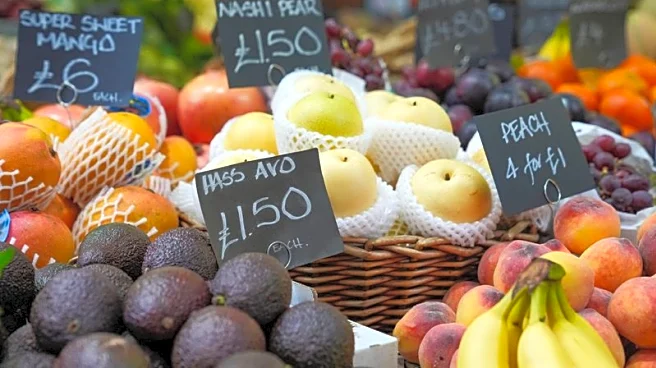LONDON (Reuters) -British consumer price inflation increased to 3.8% in July from 3.6% in June, official data showed on Wednesday.
The Bank of England had forecast headline inflation would rise to 3.8%
while economists polled by Reuters had mostly expected a rate of 3.7%.
The BoE lowered interest rates this month but only after a close 5-4 vote by policymakers. The Monetary Policy Committee suggested it would slow the already gradual pace of its rate cuts due to persistently above-target inflation.
Inflation in Britain is running higher than in the United States, where it held at 2.7% in July, and in the euro zone where it is expected to remain around the European Central Bank's 2% target over the coming years.
By contrast, the BoE thinks British inflation will hit 4% in September, double its target, and stay above 2% until mid-2027.
Some of the difference with inflation in other countries reflects how energy and other utility prices are regulated in Britain. Big increases in utility bills in April have boosted year-on-year inflation comparisons.
Britain's relatively tight labour market, which economists say has become more rigid since Brexit, is also putting upward pressure on prices. Wage growth in Britain has slowed but at about 5% it is too high for the BoE to feel comfortable about inflation returning rapidly to 2%.
Furthermore, employers say that a tax increase on them and a big jump in the minimum wage are forcing them to put up prices.
ONS data published last week painted a picture of an economy with enough momentum to keep inflation high. Output grew by more than expected in the second quarter and the labour market, while still losing jobs, showed signs of stabilisation.
(Writing by William Schomberg; Editing by Toby Chopra)










